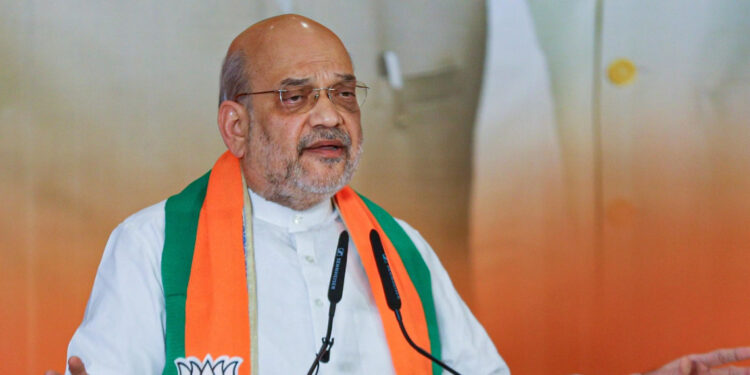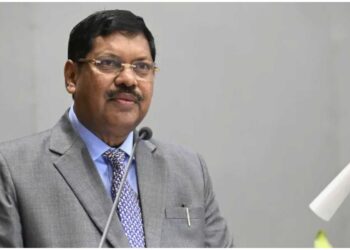Union Home Minister Amit Shah dismissed any possibility of an electoral alliance with Bharat Rashtra Samithi (BRS) in Telangana. He also denied speculation about Jana Sena Party merging with the BJP in Andhra Pradesh.
COIMBATORE: Union Home Minister Amit Shah categorically ruled out any possibility of an electoral alliance with Bharat Rashtra Samithi (BRS) in Telangana. He also dismissed speculation that actor-politician Pawan Kalyan’s Jana Sena Party might eventually merge with the Bharatiya Janata Party (BJP) in Andhra Pradesh.
Speaking in an informal interaction with the media in Coimbatore that lasted for over two hours, Shah criticised BRS, stating that it was led by someone who “runs politics from a farmhouse, whether in power or outside.” He further alleged that the leader had “left his son and daughter to engage in corruption,” asserting that BRS had no political future.
Commenting on BJP’s electoral performance in southern states, Shah said that since 2014, the party had been focused on strengthening its organisational structure across different states. He admitted that progress had been slow but emphasised that the party had not compromised on its core ideology. Citing the party’s growing influence in northeastern states and Odisha, he added that West Bengal, Tamil Nadu, and Telangana were now part of BJP’s “must-win” states.
When asked about a potential alliance between BJP and AIADMK or actor Vijay’s party, Tamilaga Vettri Kazhagam (TVK), Shah refrained from giving a direct answer. He simply stated that the National Democratic Alliance (NDA) would take on the ruling Dravida Munnetra Kazhagam (DMK) in TamiNadu. However, he firmly ruled out any alliance in Telangana.
Delay in Telangana BJP Leadership Appointment
Responding to a question about the delay in appointing a new BJP president for Telangana, Shah said that the issue was not unique to the state and was present in several others as well. He did not provide a timeline for the appointment.
Shah dismissed concerns that parliamentary seat delimitation would lead to injustice for southern states. He assured that the increase in seats would be proportionate across all states and that no region would lose its representation.
On allegations that the BJP was imposing Hindi on non-Hindi-speaking states, Shah rejected such claims. He asserted that while the BJP supports the promotion of Hindi, it has never hindered the growth of regional languages. “We have published medical textbooks in Hindi and Gujarati, so why not in Tamil?” he asked.
Reaffirming the BJP’s commitment to its ideological stance, Shah said the party would not always cater to public sentiment but would take decisions that ensure long-term benefits. He cited the abrogation of Article 370 and the opposition to Hindi enforcement as examples, stating that short-term populism might help some parties, but strong decisions were necessary for long-term national progress.
One Nation, One Election Implementation
Addressing the implementation of the ‘One Nation, One Election’ policy, Shah said that once the legal framework was in place, a clear timeline would emerge. He explained that the terms of state assemblies would be adjusted to align with the national election cycle.
Analysing the recent Delhi elections, Shah attributed the BJP’s success to effective micro-management and strong voter sentiment against the Aam Aadmi Party (AAP). He claimed that public anger over alleged corruption, including the liquor scam involving Chief Minister Arvind Kejriwal’s government, played a significant role in exposing AAP’s governance failures.










